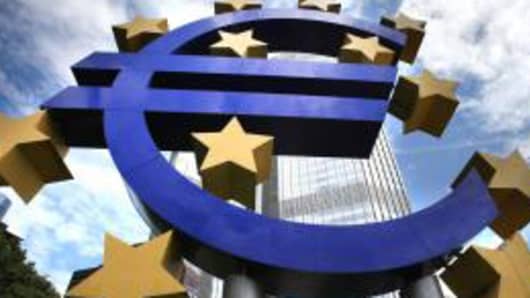With the euro zone debt crisis far from over, a new strategy has been put forward to alleviate the strain currently faced by households and consumers across the continent.
Consultancy firm Strategic Decisions Group is urging Europe's leaders to adopt a dual currency approach as an alternative to the greater fiscal integration that is currently being discussed at EU summits.
Managing director of its Europe and Middle East arm, Mazen Skaf, says that struggling countries should be given the flexibility to introduce national currencies alongside the euro.
"The national currency would be used for payment of public pensions, the salaries of public sector employees and also for domestic transactions," he told CNBC on Tuesday.
"The amount of fiscal integration that needs to happen is daunting and people don't realize how many obstacles and negotiations and changes need to happen for that fiscal integration to happen."
Skaf explained that all assets denominated in euros, such as bank deposits, will continue to be honored in euros so that any bank runs are prevented. Similarly, external debt in the single currency would still be honored in Europe.
Earlier this year, the city of Volos in Greece introduced the TEM bartering system, and CNBC reported in September that the Greek region of Macedonia was investigating the possibility of implementing a similar system.
(Read More: QE Goes Local: Towns Coin Their Own Currencies)
"There is a need in the markets for a local currency and the market participants are already innovating along these lines." Skaf said.
Moorad Choudhry, head of business treasury in the global banking and markets arm of RBS told CNBC it was an "elegant solution" but had concerns that valuation problems would mean no-one would want to hold the alternative currency.
Choudhry explained that the reason that many countries use the dollar alongside their own currency is that it holds value as it is renowned as the world's reserve. Any alternative exchange system wouldn't have that guarantee.
"I can see it struggling to get off the ground," he said.
Skaf, on the other hand, thought of it as"reverse dollarization" where instead of consumers losing faith and using a foreign currency, they were in fact losing faith with the foreign currency and opting for an exchange system on a smaller scale.
"You need some help from the ECB (European Central Bank) to support the countries with that transition by keeping the trading within a certain bandwidth of the specific local currency to restore competitiveness and to restore economic growth in that local market," he said.


